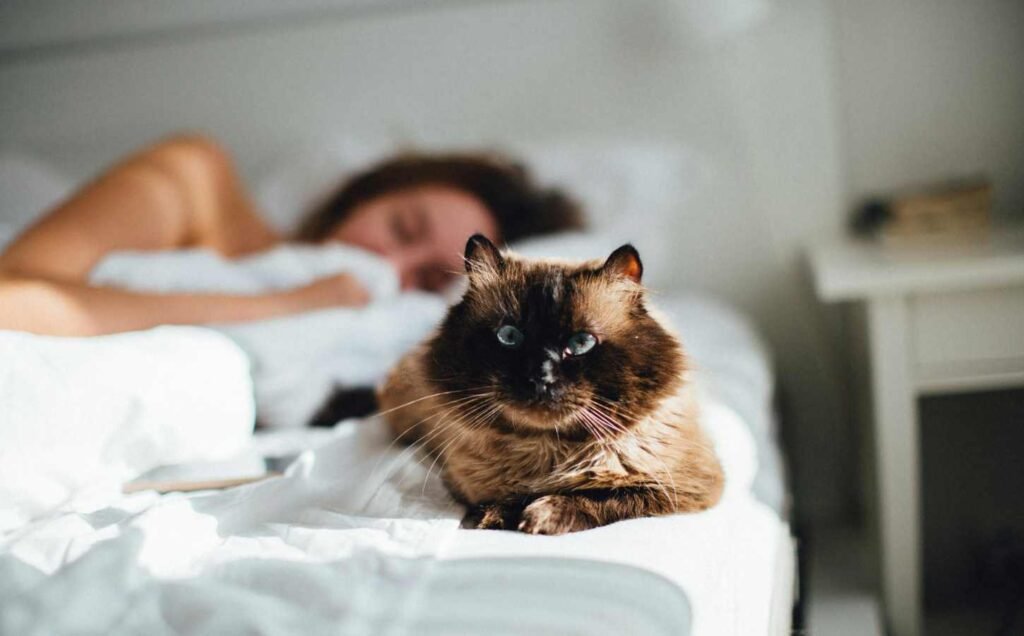Have you ever found yourself tossing and turning in bed, wondering why sleep eludes you? The answer could lie in your dinner plate. Yes, what you eat affects how well you sleep.
Understanding the relationship between your diet and sleep can help you make choices that promote restful nights. Let’s dive into the best and worst foods for sleep, backed by science, and learn how to adjust your eating habits for the zzz’s you deserve.
The Connection Between Diet and Sleep
The foods we consume can significantly impact our sleep quality due to their effects on the body’s chemistry and internal clock. Nutrients like tryptophan, magnesium, and melatonin play crucial roles in promoting sleep. Conversely, foods high in fat, caffeine, and sugar can disrupt our sleep patterns, leading to a restless night.
The Best Foods for Sleep
Incorporating these foods into your diet can help enhance the quality of your sleep:
- Cherries: One of the few natural sources of melatonin, cherries, especially tart cherries, can help regulate sleep.
- Bananas: Packed with magnesium and potassium, bananas can relax muscles and nerves, promoting restful sleep.
- Fatty Fish: Salmon, trout, and mackerel contain omega-3 fatty acids and vitamin D, aiding in serotonin production for better sleep.
- Almonds and Walnuts: These nuts are rich in magnesium and melatonin, supporting sleep regulation.
- Kiwi: High in antioxidants and serotonin, kiwis can improve sleep onset, duration, and efficiency.
- Oatmeal: A warm bowl of oatmeal is not just comforting; it’s rich in nutrients that help produce melatonin.
The Worst Foods for Sleep
Avoid these foods close to bedtime to prevent sleep disturbances:
- Caffeine: Found in coffee, tea, chocolate, and some sodas, caffeine can significantly disrupt your sleep cycle.
- Spicy Foods: Can cause heartburn and discomfort, making it hard to fall asleep.
- High-Fat Foods: Greasy or fatty meals can be hard to digest, leading to discomfort and sleep interruptions.
- Heavy or Large Meals: Eating big meals close to bedtime puts pressure on your digestive system, leading to discomfort.
- Alcohol: While it might help you fall asleep faster, alcohol reduces sleep quality and can cause awakenings later in the night.
Implementing Diet Changes for Better Sleep
Scenario 1: Emma finds herself wide awake at midnight after indulging in her favorite spicy tacos for dinner.
Solution: Emma could opt for a lighter, less spicy meal in the evening, like grilled chicken with vegetables, and save her taco treat for lunchtime instead.
Scenario 2: After his evening coffee ritual, Mike struggles with insomnia and restless nights.
Solution: Mike can switch to herbal tea or a warm milk drink in the evening, reserving coffee for the morning hours only.
Tips for a Sleep-Friendly Diet
- Balance Your Diet: Aim for a balanced diet rich in fruits, vegetables, lean proteins, and whole grains to improve overall sleep quality.
- Mind Your Meal Timing: Try to have your last meal of the day at least 2-3 hours before bedtime to allow proper digestion.
- Hydrate Wisely: While staying hydrated is crucial, limit fluid intake before bed to minimize nighttime trips to the bathroom.
- Snack Smart: If you’re hungry before bed, opt for a small, healthy snack like a banana or a handful of almonds to stave off hunger without disrupting your sleep.

Conclusion of The Best and Worst Foods for Sleep
Diet plays a significant role in the quality of our sleep. By choosing foods that support sleep and avoiding those that hinder it, we can enhance our overall health and well-being. Remember, it’s not just about what you eat but also when you eat. Embrace these dietary changes and let your path to better sleep be as delicious as it is restful.
Adapting your diet for better sleep doesn’t mean overhauling your eating habits overnight. Start with small, manageable changes and observe how your sleep improves. Here’s to better sleep through better eating!




